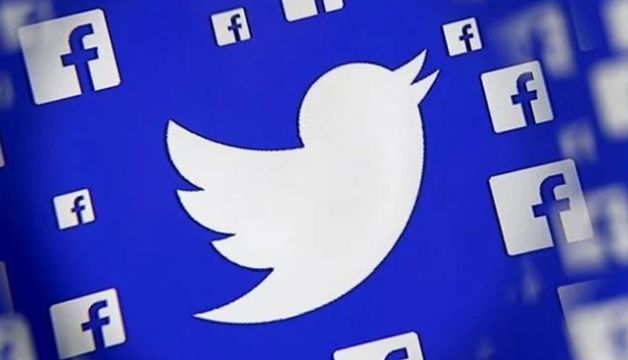Russia Shuts Digital Doors to Wage War, Experts Say
Russia’s Facebook block is a symptom of its broader effort to isolate itself from information sources that could jeopardize its internationally condemned invasion of Ukraine, experts say.
The often-criticized social network is part of a network of news sources that could challenge the Kremlin’s preferred view that its attack on Ukraine is right and necessary.
Facebook and Twitter were blocked on Friday, the same day Moscow backed imposing jail terms on media outlets that publish “false information” about the military.
Russia’s motivation “is to quell political challenges at a very difficult time for (Vladimir) Putin and the regime when it comes to those who are asking very difficult questions about why Russia is continuing this war,” said lead researcher Steven Feldstein at the Carnegie Endowment for International Peace.
Russia joins China and North Korea in the tiny club of countries that are locked out of the world’s largest social network.
Moscow was expected to quickly overwhelm its neighbor, but the campaign has already shown signs it could last longer and unleash its full military ferocity.
“It’s a censorship tool of last resort,” added Feldstein. “They take a platform offline instead of trying to block sites or using all sorts of other mechanisms that they traditionally use.”
Earlier this week, independent monitoring group OVD-Info said more than 7,000 people had been arrested in Russia during protests against Moscow’s invasion of Ukraine.
Web surveillance group NetBlocks said Russia’s moves against the social media giants come amid protests “coordinated and mobilized through social media and messaging apps.”
The war comes at a time of unprecedented repression of the Russian opposition, particularly with protest leaders killed, imprisoned, or expelled from the country.
“No Access to the Truth”
Since Moscow’s invasion of Ukraine last week, Russian authorities have increased pressure on independent media, even as press freedom in the country is already rapidly declining.
Facebook plays a key role in disseminating information in Russia, even as it faces fierce criticism in the West on issues ranging from political divisions to adolescent mental health.
Natalia Krapiva, legal counsel for technology at advocacy group Access Now, said social media is a place where independent and critical voices spoke about the invasion.
“Facebook is one of the most important platforms in Russia,” he said, adding that his loss was “a devastating blow to access to independent information and resistance to war.”
Russia has been hit by unprecedented sanctions from the West after the invasion, but also symbolic and significant rebuffs from sources ranging from sports organizations to American tech companies.
However, Meta and Twitter, Facebook’s parent company, have meddled in the highly sensitive issue of information by blocking the transmission of pro-state Russian media.
Russia’s media regulator has targeted both, with Roskomnadzor accusing Facebook of discriminating against state media.
Major US tech companies such as Apple and Microsoft have announced they will suspend sales of their products in Russia, while other companies have made public their “pauses” from certain business activities or ties.
On Friday, US Internet service provider Cogent Communications said it had “terminated its contracts with customers billing outside of Russia.”
The Washington Post reported that Cogent had “several dozen customers in Russia, many of whom, like state telecom giant Rostelecom, are pro-government.”
Also Read: Elon Musk donates 50 satellite terminals to Tonga
This is exactly the kind of move Ukrainian officials have been fighting for, calling on Russia to cut everything from Netflix to Instagram.
Still, pundits like Krapiva worry about what that would mean for dissenting or critical voices in Russia.
“There is a danger that people will not have access to the truth,” he said.
“Some Ukrainians have asked for Russia to be disconnected from the internet, but it is counterproductive to disconnect civil society in Russia that is trying to defend itself.”
Also Read: WhatsApp brings innovation to its voice memo feature

